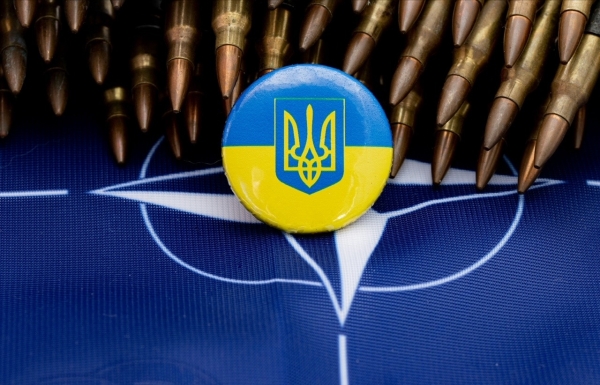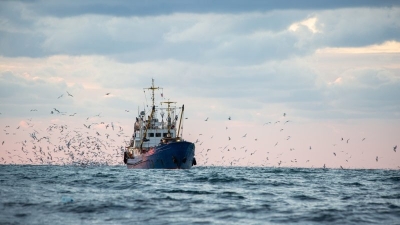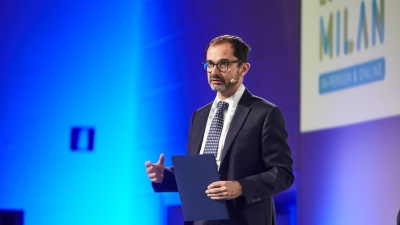‘No violence or intimidation’ can block Ukraine’s NATO path

Speaking at the NATO Open Door Conference in Helsinki, NATO Deputy Secretary General Mircea Geoană welcomed Ukraine’s readiness to join NATO and said that “NATO’s door remains open” and “no violence or intimidation can stop that”. The embassies of Bulgaria, Estonia, Latvia, Lithuania, Romania, Slovakia, and Slovenia had organised the event, in collaboration with the Finnish Institute for International Affairs and the Atlantic Council of Finland, to mark the twentieth anniversary of their countries’ accession to NATO.
In his virtual address, Mr Geoană said that he could not think of a better host than Finland to talk about NATO’s open door policy. “Together with our newest member Sweden, you have shown the world what freedom means,” he said and added that President Putin has failed in his attempt to “slam NATO’s door shut.”
The Deputy Secretary General highlighted that Ukraine has, like others before it in Central and Eastern Europe and the Baltics, chosen the path to NATO membership. From 1949, NATO has grown from twelve members to thirty-two and it will continue to “to build a bridge for Ukraine to join our great Alliance”, as it looks to the Washington Summit in July.
The Deputy Secretary General stressed that NATO’s open-door policy has brought more forces, more capabilities, and more people with skills and expertise into the alliance. ”NATO allies from the Baltic to the Black Sea contribute significantly to NATO’s collective security”, he said, stressing that these countries also contribute to NATO’s innovation ecosystem, including test centres and accelerator sites part of NATO’s Defence Innovation Accelerator for the North Atlantic (DIANA).
The previous day Mircea Geoană had visited the Allied Maritime Command (MARCOM) Headquarters in Northwood, near London, where he met the Commander of MARCOM, Vice Admiral Mike Utley and other key members of staff. The Deputy Secretary General and the Commander’s discussions focused on the importance of MARCOM in NATO’s new defence plans and the command’s crucial role in keeping seaways between North America and Europe open.
After recent damage to Baltic Sea underwater infrastructure, they also discussed how Allied navies and new technologies can better protect undersea infrastructure and the Alliance’s role in shielding subsea cables and pipelines. Mr Geoană further highlighted the need for continued Western support to Ukraine, saying that the cost of allowing Russia to prevail would be far greater than the cost of supporting Ukraine now.
The Deputy Secretary General and the Commander also discussed evolving missile and drone technologies, as well as how NATO can better adapt to the role of artificial intelligence in modern warfare. Warning that the alliance is facing the greatest security challenges in a generation, Mr Geoană stressed MARCOM’s central role in protecting NATO’s one billion people.
AdvertisementHe concluded his trip with an opening address at the third edition of the annual NATO Integrated Air and Missile Defence (IAMD) Conference in London. This year’s conference focused on the deliverables for the Washington Summit, lessons learned from the war against Ukraine, and NATO IAMD adaption beyond the Summit.
Share this article:



